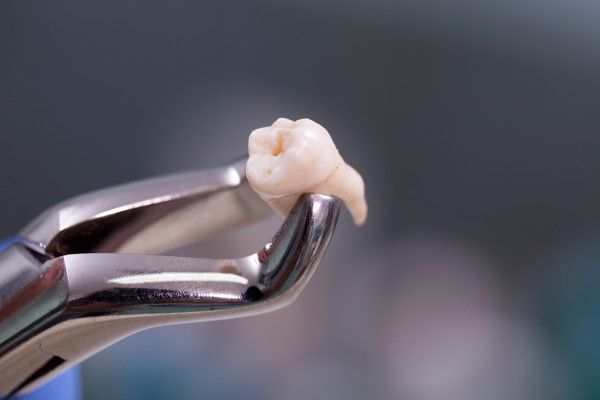Potential Issues When You Do Not Have Wisdom Teeth Removed
Getting your removed can be a nerve-wracking experience. The recovery process alone, with the swollen cheeks, ice packs, and pain killers, is enough to make you feel that it is unnecessary despite what your dentist may say. However, wisdom teeth removal is often recommended as a means to prevent several painful illnesses. We will go over some of these below.
Why a dentist might recommend extracting wisdom teeth
Think you might need to have one or more of your wisdom teeth extracted? Here are some of the reasons a patient might be better off having their wisdom teeth extracted:
Periodontal disease
Wisdom teeth are located at the very back of your mouth and are also known as third molars. Once these teeth erupt from the gums, their position makes it difficult to brush them properly. The build-up of food and debris often leads to chronic periodontal disease. The condition starts with gingivitis, which leads to symptoms like bleeding, inflamed, and tender gums. If a wisdom tooth is only partially erupted, the gum flap is vulnerable to collecting food particles and becoming infected.
Cysts and tumors
Cysts and benign tumors, some of which start from cells involved in the development of teeth, can form in the immediate tissue surrounding wisdom teeth. This most often occurs when the wisdom tooth has not fully erupted from the gum tissue. A cyst is a sac that contains liquid, and a tumor is an abnormal growth of tissue. In a process known as root resorption, a cyst or a tumor breaks down the intricate tooth root structure and can even damage the integrity of the tooth itself. They can also displace healthy teeth.
Damage to adjacent teeth
When wisdom teeth become impacted, meaning they do not fully erupt from gum tissue, they can cause irreparable damage to adjacent teeth, their roots, and surrounding bone. They may grow at an abnormal angle, sometimes horizontally or even inverted, and push against the first and second molars, leading to pressure, pain, and infection. Some experts argue it causes crowding of the front teeth, like your incisors, making efforts to keep them straight futile. Some dentists might recommend wisdom teeth removal to make it easier to align the remaining teeth correctly.
Interference with jaw movement
Impacted wisdom teeth can cause symptoms similar to those associated with temporomandibular disorders (TMD), including jaw pain, swelling, and stiffness. Whether chewing, swallowing, or speaking, interference with jaw movement can be debilitating and cause issues in everyday life. Also, improper bite alignment and uneven bite pressure often lead to excessive tension, which wears down teeth and can cause crack formation.
Infection
A dentist might recommend extracting a wisdom tooth if it is infected. Root canals are typically recommended for infected teeth, but dentists tend to be reluctant to perform them on wisdom teeth. The location of wisdom teeth at the back of the mouth makes them more vulnerable to decay and infection, so there is no guarantee a treated wisdom tooth will not cause more issues in the future.
Dentists often recommend extracting wisdom teeth the first-time issues develop. Some dentists might even recommend extracting all four to avoid any problems that could develop in the future.
Extracting a wisdom tooth is no different than extracting any other tooth. Simple or surgical extractions are performed based on how much of the tooth is left. A simple extraction is performed if the dentist can grab and pull out the tooth with forceps. A surgical extraction is performed if an incision needs to be made to reach the tooth better.
Severe tooth decay
A dentist might recommend extracting a wisdom tooth that is severely decayed. As we mentioned earlier, wisdom teeth are more prone to decay, so dentists typically avoid performing extensive treatments on them to address decay.
If a decayed wisdom tooth only needs a filling, the dentist will typically perform the procedure. However, if the decayed tooth needs extensive treatments, dentists often recommend extracting them. Since wisdom teeth are the only set of teeth that are not necessary, an extracted wisdom tooth does not need to be replaced.
You might need an extraction
Wisdom tooth extraction can help to protect the rest of your teeth and your health. Our dentist has years of experience extracting wisdom teeth. Think you need an extraction? Give us a call or visit our Marietta clinic to set up an appointment.
Check out what others are saying about our dental services on Yelp: .
Recent Posts
Dental professionals often recommend wisdom teeth removal between the ages of 16 and 19 to prevent concerns such as overcrowding, crooked teeth, oral infection, and general discomfort caused by the improper growth of wisdom teeth. This review closely examines why wisdom teeth removal is encouraged at a young age.Wisdom teeth removal is often necessary before…
Thinking you may need a wisdom tooth extraction? Read on to learn more about this common dental procedure. Wisdom teeth are the molars at the rear of the mouth and typically the last ones to erupt. The wisdom teeth come in around the late adolescent years or early adulthood, but the time differs from patient…
There are certain times when tooth extraction may be necessary. However, many dentists recommend patients elect to have a wisdom tooth extraction for preventive reasons before symptoms show up. This review discusses three common reasons why wisdom tooth extraction may be necessary. The most notable reasons to consider wisdom tooth extraction are to create more space…
The wisdom teeth are additional molars that typically grow in, in the back of a person’s mouth. When they begin to grow in, a person can feel an immense amount of pain while others may not feel any pain. Wisdom teeth are typically assessed by a dentist at a regular checkup from X-rays or exams.The…


